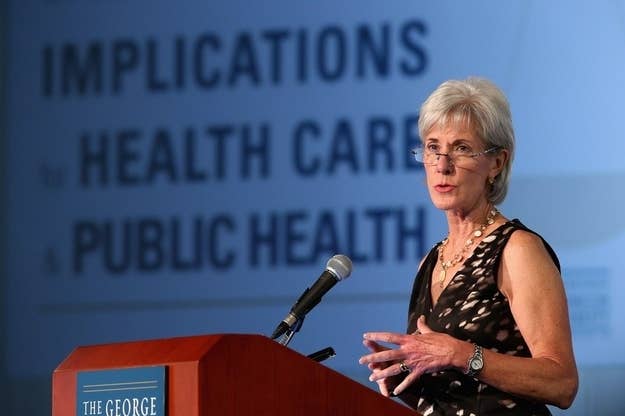
Federal health-care programs and those funded with federal dollars are barred from discriminating against transgender people, a senior official with the Department of Health and Human Services told LGBT advocacy groups in July — a sweeping decision that will impact most health-care services across the country.
Although the decision does not specifically address transition-related care — surgery and other medical procedures that some transgender people undergo in the course of moving to their self-identified gender — a leading transgender advocate says the decision is a "tool" to get protections that would cover transition-related care.
In response to a letter sent by a dozen LGBT health and advocacy organizations to HHS Secretary Kathleen Sebelius in June, Leon Rodriguez — the director of HHS's Office for Civil Rights — wrote on July 12 HHS considers discrimination based on "gender identity or failure to conform to stereotypical notions of masculinity or femininity" in federal health programs or activities receiving funding under Affordable Care Act-covered programs to be illegal.
In the letter, obtained by BuzzFeed, Rodriguez agreed with the groups' assessment that the prohibition on sex discrimination in Obama's health care law prohibited discrimination against transgender people and stated that his office would investigate any complaints of such discrimination.
Referring to a recent survey, National Center for Transgender Equality executive director Mara Keisling told BuzzFeed that 20 percent of transgender people report being turned away from a health-care provider for being transgender.
"That's illegal now," she said.
Of the impact, Keisling said, "This is just about getting health care, emergency rooms and doctors. It is about giving care that you give to other people to trans people."
The decision comes about because of Section 1557 of the Affordable Care Act — the 2010 health care overhaul known as ObamaCare — forbids discrimination on the grounds of sex, race, national origin, disability or age in health programs or activities receiving federal financial assistance or by programs administered by an Executive Agency or any entity established under Title I of the ACA, as the Leadership Conference for Civil and Human Rights described the provision.
Then, as the LGBT groups' letter stated, "A recent ruling from the Equal Employment Opportunity Commission provides strong support for HHS and other federal agencies to unequivocally state that discrimination based on sex includes discrimination based on gender identity or expression." In that decision — Macy v. Bureau of Alcohol, Tobacco, Firearms and Explosives — the EEOC found that the sex discrimination in Title VII of the Civil Rights Act included discrimination based on gender identity.
Rodriguez wrote: "We agree that Section 1557’s sex discrimination prohibition extends to claims of discrimination based on gender identity or failure to conform to stereotypical notions of masculinity or femininity and will accept such complaints for investigation. Section1557 also prohibits sexual harassment and discrimination regardless of the actual or perceived sexual orientation or gender identity of the individuals involved."
He added that "HHS OCR intends to issue future guidance on Section 1557."
Regarding transition-related procedures that some transgender people undergo, Keisling said of the HHS interpretation — which tracks recent legal developments about the definition of "sex" in federal anti-discrimination laws — she said, "Does it mean they have to perform every procedure? No, because not all hospital do all procedures.
"I don't think we know what this means for transition-related care," she said. "Is it about transition-related care. We'd argue so, but more about a tool to get to that place."
